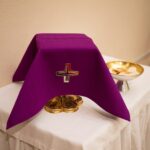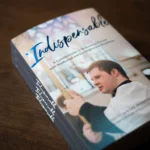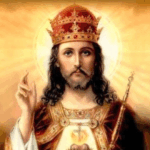I wrote a short note a few weeks back, hoping to finish it as a blog post quickly. I just came back to it now. Sorry for the delay – I was busy. I will publish it.

We must distinguish a difference in opinion on theological, liturgical, or philosophical matters from heresy. It goes completely against charity to call someone a heretic in such cases. I see this far too much online. Often those with more study in the error are able to avoid this error of uncharity, but recently I saw several who have advanced degrees in these topics making this issue. I want to briefly point to that issue and then briefly discuss the topic more generally.
We Can Have Different Understandings of Divine Omniscience
On Friday, November 11, Alasdair MacIntyre gave a talk titled “The Apparent Oddness of the Universe: How to Account for It?” In it, he spoke mainly about how we are singularities, and there is a wonder in creation. The wonderful way that free will leaves us an undetermined world. This was part of the Di Nicola center’s Fall Conference I was attending at Notre Dame.
In the talk, he also took a certain view on divine foreknowledge. He argued that God does not know future contingents. One of the key paragraphs (starting at 25:00):
To say that God is omniscient is to say that he knows everything that there is to be known. It is important that there are some things that occur that are not there to be known until they have in fact occurred. Many of our thoughts and utterances are predictable, but some are not. So it is with someone’s yet unmade decisions, when neither the agent, who is as yet quite unable to make up her or his mind, or anyone else knows what the agent is going to decide until the moment when that agent makes her or his decision. Until the agent finally makes her or his decision, her or his future action is undetermined there is no fact of the matter about what she or he is going to decide or to do.
Many would hold a different view of how they understand divine omniscience regarding future free will actions. In fact, the most common view in catechetics, which is also a common view among scholars, is opposed. This latter view would hold, against MacIntyre, that God knows these actions but does not cause them. I personally am uncertain about the two views. I think the non-MacIntyre view runs into problems when tested that probably would not be covered in catechetics, but people have worked out those issues. My point here is not to examine which is the correct view, simply to note neither is heretical.
However, people were quick to accuse MacIntyre of heresy. Many at the conference questioned this, and most of the questions were on the topic. Then online, it seems to have gone even further. For example, Chad Pecknold called his statements “heterodox error on divine foreknowledge.” Urban Hannon, in a more extensive piece, writes, “Alasdair MacIntyre… has unfortunately capped his career by denying divine omniscience.” Yet, he only denied your preferred theory of omniscience. It got spread so much that when I got back to Belmont Abbey on Sunday, it was the first thing a fellow theology faculty member I had dinner with me asked me about.
The Scandal of Overusing “Heretic”
Jumping quickly to “heretic,” “heterodox” or similar is problematic in multiple ways.
First, it is a complete lack of charity.
Second, it stifles helpful debate. Genuine intellectual debate on undetermined questions can help the Church and individuals get to the truth. This divine foreknowledge question is a great example where more discussion would be quite helpful.
Third, it lacks truth. If the person is not a heretic and you say they are, you speak contrary to the truth.
Fourth, it brings scandal as if we are in some position of authority, our rash judgment here encourages others also to make rash judgments.
Some things are clearly heretical – like if someone says the Eucharist is only a symbol; or proposes that at the incarnation, the divine and human nature were mixed and changed – but we should be very hesitant to use terms like this on disputed questions. If you are not a theologian, I would recommend against using it for fellow Catholics unless you hear a solid theologian using it. Even we theologians should be cautious and only use it when we are 100% sure and can cite a clear defined teaching a statement goes against.
This is not to discourage debate and discussion. This is not to say you can’t point out where you think someone errs. Just the opposite: I think it encourages discussion; it just keeps that discussion in the realm of truth and charity.






Faith gentlemen…is sufficient. Every person who sees, hears, smells or touches you comes away with a unique impression based entirely on That moment. A question: who Knows, Knows mind you, who knows You, the person who attends your lecture, the person who brushes past you in a crowd or the myriad other people who encounter you in ways so vast and uncountable that it is quite literally impossible to calculate. Every single one of those people Knows you, as Only they can. Now, apply the same question to God and you have your answer.